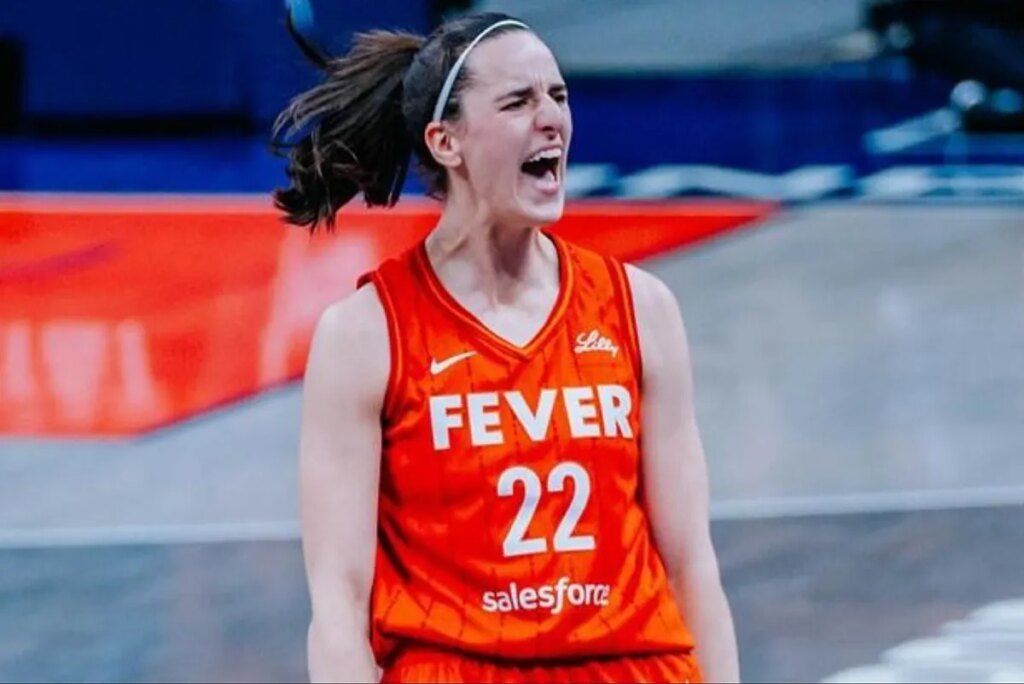In recent days, a firestorm has erupted in the WNBA over comments allegedly made by Commissioner Cathy Engelbert about star guard Caitlin Clark.
The controversy has intensified debates around player compensation and the league’s relationship with its marquee personalities, with Engelbert now pushing back on the reported statements and insisting that they are inaccurate.
The dispute began when Minnesota Lynx forward and WNBPA vice president Napheesa Collier claimed that during a private conversation, Engelbert told her: “Caitlin should be grateful she makes $16 million off the court because without the platform that the WNBA gives her, she wouldn’t make anything.”
Collier further alleged Engelbert said: “Players should be on their knees, thanking their lucky stars for the media rights deal that I got them.”
Those remarks, if true, would represent a starkly dismissive view toward players who are increasingly seen as central to the league’s growth.
Sophie Cunningham, a guard for Clark’s Indiana Fever, pushed back emphatically, saying that many people only know Engelbert because of Clark’s influence, and rejecting the idea that Clark is owed gratitude.
Meanwhile, Clark herself acknowledged Collier’s critique, describing it as raising “many valid points” during her exit interview. Clark also expressed support for renewed leadership and better alignment between the league and its players.
Engelbert sets the record straight
Engelbert convened a press conference prior to Game 1 of the WNBA Finals to address the backlash. She denied making the quoted remarks about Clark, calling the reports inaccurate and emotionally charged.
“Obviously, I did not make those comments. Caitlin has been a transformational player in this league. She’s been a great representative of the game. She’s brought in tens of millions of new fans to the game,” Engelbert said.
“Yeah, as I said, there are a lot of inaccuracies reported out there, and I certainly did not say that.”
She went further in acknowledging the rift that exists between the WNBA and its star players: “I was disheartened to hear that some players feel the league and that I personally do not care about them or listen to them.
“If the players in the ‘W’ don’t feel appreciated and valued by the league, we have to do better, and I have to do better.”
Engelbert also denied claims that she ever told players to kneel in gratitude for media deals, though she stopped short of an explicit denial of that phrase. She described the reporting as driven by social media and journalistic errors, and pledged to repair trust with players.
The CBA issue and Caitlin Clark effect
This clash arrives amid tense negotiations over the new Collective Bargaining Agreement. The current CBA expires October 31, and since the WNBPA opted out early, momentum has built for a substantially higher payout to players.
League revenue has surged in recent years, thanks in part to increased viewership, attendance, and Clark‘s dramatic pull.
Yet players continue to receive a relatively small percentage of Basketball-Related Income (BRI), which has fueled calls for a more equitable structure.
The “Caitlin Clark effect” is real – she has dramatically boosted attention and financial interest in the WNBA. She broke viewership records during her college career, and her WNBA arrival has correlated with spikes in attendance, merchandise sales, and media engagement.
Yet Collier‘s allegations contended that Engelbert seemed to minimize that contribution rather than embrace it. If Engelbert‘s denials are taken at face value, her comments underscore how volatile discussions about players’ value, gratitude, and ownership psychology have become.
Even as she insists she respects and supports the athletes, the rift signals deeper challenges in aligning league leadership with a modern era of player empowerment.
Read the full article here


